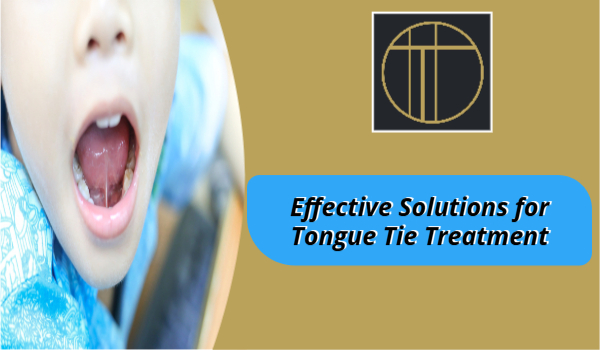Tongue tie, a condition where the lingual frenulum, the tissue connecting the underside of the tongue to the floor of the mouth, is too short or tight, can affect speech, feeding, and oral hygiene. While it may seem like a minor issue, tongue tie treatment can significantly improve a person’s quality of life. In this blog post, we will explore effective solutions for tongue tie treatment.
Understanding Tongue Tie
Tongue tie can manifest in various degrees of severity. Mild cases may not require intervention, while more severe cases may necessitate medical or surgical treatment. Early diagnosis and appropriate treatment are crucial to prevent potential complications.
Diagnosis of Tongue Tie
A healthcare professional, such as a pediatrician, dentist, or speech-language pathologist, can diagnose tongue tie. They will assess the length and flexibility of the lingual frenulum and observe any difficulties with tongue movement, speech, or feeding.
Non-Surgical Tongue Tie Treatment
In some cases, non-surgical approaches can be effective in managing tongue tie. These methods may include:
- Oral Exercises: Specific exercises can help stretch and strengthen the lingual frenulum. A speech-language pathologist can provide guidance on appropriate exercises.
- Oral Motor Therapy: This therapy focuses on improving oral motor skills, such as tongue movement, lip strength, and jaw coordination.
Surgical Tongue Tie Treatment
For more severe cases of tongue tie, surgical intervention may be necessary. The most common surgical procedure is a frenectomy, which involves a simple outpatient procedure to release the tight lingual frenulum.
Post-Treatment Care
After tongue tie treatment, whether surgical or non-surgical, it’s essential to follow post-treatment care instructions. This may include:
- Oral Hygiene: Maintaining good oral hygiene practices, such as brushing teeth regularly and using a tongue scraper, is crucial.
- Speech Therapy: Speech therapy can help individuals develop clear speech and improve articulation.
- Regular Dental Check-ups: Regular dental check-ups are important to monitor oral health and identify any potential issues.
Conclusion
Tongue tie treatment can significantly improve a person’s quality of life. Early diagnosis and appropriate treatment are key to addressing the condition effectively. If you or your child is experiencing symptoms of tongue tie, consult with a healthcare professional to discuss the best treatment options.
Please feel free to leave a comment below if you have any questions or experiences with tongue tie treatment.



